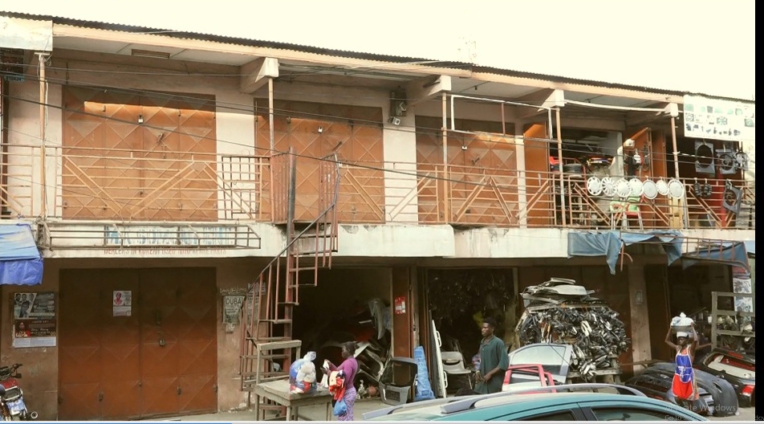Over 50 shops at the Abossey Okai Spare parts market have shut down their operations due to default in paying their loans.
Some of the owners of the shops blamed the situation on the high cost of doing business in the country, as a result of high inflation and volatilities in the exchange rate regime earlier this year.
They also cited high taxes at the port as contributing to the default in repaying their loans.
“A lot of traders go for loans to import goods to the market. Due to the high cost of port duties and the unstable exchange rate regime, we are compelled to increase prices but at the end, customers don’t buy and we lose”, a trader who gave his name as Julius said.
According to Julius, many of his colleagues have to leave the country in search of better opportunities to pay back their loans.
“It is not easy my brother. A lot of people are travelling outside the country to look for better conditions. Why operate a shop here when you can't break even”.
Expressing his disappointment, Julius said he is unhappy with the current economic situation in the country and as a result will also leave for Dubai for a carpentry profession.
"Listen! We don't have any business to do. All we have is what we do here. Look at the shops, they are all closed with no spare parts in there. Do you know why? They have all travelled because the banks are chasing them for repayment of the loans which they can't repay.
"The only option now is to travel abroad, get some monies and pay your debt. I don't think you will meet me here in your next visit. I am also going to Dubai to make money"" he said.
Kwesi, who primarily deals in automobile engines, had to rely on his children living abroad to pay a local bank a loan for ₵2 million, which, in his words, almost got him imprisoned.
He stated that the operations of the spare parts merchants are being hampered by the failure to implement pricing control policies.
"They came to my shop with some policemen. To be frank with you, the goods I used the money for were in the shop and buyers were not willing to buy because of the price. I had wanted to resort to reduction of the goods which means I won't be able to recoup my principal I used to purchase the goods"
“I would be happy if we could have price control, but it appears it won't work out because people just want to sell their goods just to stay in business. The issue of taxes too is a big problem for us”, he stated
Latest Stories
-
Education Minister inaugurates CIHRM Council
9 minutes -
‘Dumsor levy at 8% is midnight robbery’ – Oppong Nkrumah descends on gov’t
10 minutes -
‘A massive win for Vision FC’ – Nana Agyemang on win over Kotoko
16 minutes -
Nurses’ strike continues as Health Ministry fails to reach agreement with GRNMA
21 minutes -
GSTEP empowers over 30k students with STEM skills, government support needed
30 minutes -
GPRTU suspends planned strike over GH₵1 fuel levy after meeting with Energy Ministry
38 minutes -
GH₵1 fuel levy: Gov’t should conclude negotiations on the power purchase agreement – Minority
48 minutes -
GFA slaps Berekum Chelsea Coach and players with GHC 1,000 fines for misconduct, suspends penalties
1 hour -
Chamber of Aquaculture, UK’s DEFRA train women farmers in aquaculture biosecurity
1 hour -
U-20 AFCON snub motivated me to prove myself – Edmund Asante
1 hour -
Nurses didn’t exhaust all avenues before declaring strike – Health Committee Chairman
1 hour -
Public figures to join Let Love Lead’s commemorative clean-up at Kwame Nkrumah Circle
1 hour -
All set for ‘3 Faces of Jeffrey Nortey’ at the National Theatre on June 14
1 hour -
GRA to further engage OMCs on implementation of new tariff this week
1 hour -
GH₵1 fuel levy meant to purchase fuel to prevent dumsor, not to settle debts – Bedzrah
1 hour

